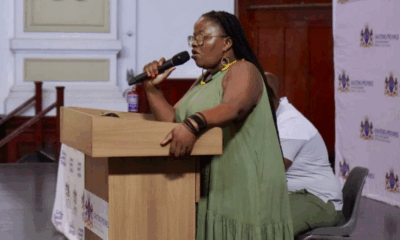Best of Johannesburg
When Social Media Fuels Bullying: What South African Parents Can Actually Do

When a Chat Message Turns into a Crisis
The moment your child unlocks their phone and a wave of cruel messages or harassing posts hits them, it feels sudden and overwhelming. In South Africa today, where social media use by teens is nearly ubiquitous, many parents are discovering that bullying no longer stops at the school gate. It follows children home, into their bedrooms, and late into the night.
The good news: you are not powerless. With a clear approach, culturally relevant tools, and awareness of South African legal rights, you can guide your child through this digital minefield.
Start at Home: Building Trust and Digital Boundaries
Open, calm conversation first. Create a space where your child feels safe to say, “Something happened online, and I’m scared.” Rather than confiscate devices on a whim, explain that you want to keep them safe. Visit the apps together. Ask what they see. Ask who they chat with.
Next: define clear rules together. A simple family agreement on device use, nighttime charging in a common area, no surprise apps, and respectful behaviour online helps build expectations. When your child knows the rules and feels included in setting them, the policy becomes something you navigate together, not something you enforce alone.
Ever thought of centralising devices? Making the family computer or tablet a shared asset in a common space limits unsupervised late-night chats and gives you better visibility of what’s going on.
And don’t skip the digital citizenship talk. Remind your child that what goes online stays visible, can hurt others, and shapes how people see them. Empathy isn’t optional here. Ask: “If someone posts you’re a loser, how would you feel the next day?” These conversations matter.
Spotting Trouble Before It Gets Worse
Watch for the signs: sudden mood changes, drop in school performance, reluctance to socialise, late-night screen glow, and anxiety. These can all hint at bullying, whether offline or on-screen.
In a South African context, many parents are still unaware of how technology can magnify harassment. It doesn’t happen only at school. It happens on weekends, during the holidays, and when friends share or repost without thinking.
By understanding the risk factors, feeling different, lack of a strong peer group, new school, or being identified as vulnerable, you can steer early conversations and build resilience in your child.
When Bullying Arrives: What to Do
Once you know the bullying is occurring, timing is everything. Here’s your action plan:
1. Listen and reassure. Stay calm. Let your child lead the description of what’s happening. Don’t rush in with punishment or blame. Your reaction will set the tone for how they respond from now on.
2. Don’t retaliate. Advise your child not to answer, reply, or engage with the bully. It often escalates the situation.
3. Gather the proof. Screenshots, dates, times, chat logs, and links: all of this becomes your child’s digital footprint of the event.
4. Block and report. Most platforms, Instagram, TikTok, Snapchat, and the rest, offer block, mute, restrict, and report features. Use them. Make them part of the action.
5. Involve the school. South African schools have rules in place and a legal duty to act. Report the incident to the principal or a trusted teacher with your evidence. Keep meeting notes and deadlines, and ask for an action plan.
6. Seek professional help. If your child shows signs of severe distress, anxiety, withdrawal, or talk of self-harm, contact a child counsellor immediately. Organisations like the National Child Helpline are available 24/7.
Legal Support: South Africa Does Have Tools
Although there is no law called “cyberbullying” in the narrow sense, South Africa’s legal framework gives real remedies. The Cybercrimes Act 19 of 2020 provides criminal recourse for online threats and harmful communications. The Protection from Harassment Act 17 of 2011 allows victims to apply for protection orders when harassment continues. Schools and parents must protect children’s best interests under the Constitution. A recent 2025 legal commentary reminds parents of their duty to act promptly when online harm is detected.
If a school is aware of bullying and fails to act, it may be liable in a civil sense. So keep records of your communications and the school’s response.
A Fresh Angle: Culture, Community, Digital Citizenship
In South Africa, we often underestimate how communal our children’s lives are, both online and offline. A thoughtless repost can go viral among the school’s WhatsApp group, among neighbourhood friends, and on gaming chats. The ripple expands quickly.
That means digital citizenship isn’t optional. It becomes part of upbringing. When your child understands that one careless post can affect friendships, reputations, sleep, and ambition, then you’re doing more than protecting them. You’re empowering them.
As a parent, you are a model. You speak kindly in family group chats. You refrain from forwarding unverified messages. You show how to behave online. Your children see you. They imitate you. Your example matters.
In Johannesburg, Pretoria, Durban, or anywhere else, bullying isn’t confined to geography. But community solidarity helps. Schools, neighbours, older siblings, and local youth groups: all of them play a role. Ask your child’s school if they host digital-safety talks. Attend them. Suggest local parent forums. Digital safety is no longer just an individual matter; it’s a community one.
Social-media bullying may feel overwhelming. But South African parents are not powerless. By building open lines of communication, setting fair rules, monitoring wisely, acting fast when incidents occur, and knowing the legal tools available, you can protect your child and help them grow into a confident, responsible digital citizen.
And remember: in the swirl of notifications and posts, your steady presence is the calm. Your listening ear makes the difference. Your partnership matters.
Also read: Digital ID SA 2025: How Safe Are Your Records in South Africa’s New Identity System?
Follow Joburg ETC on Facebook, Twitter, TikT
For more News in Johannesburg, visit joburgetc.com
Featured Image: Brock University



























